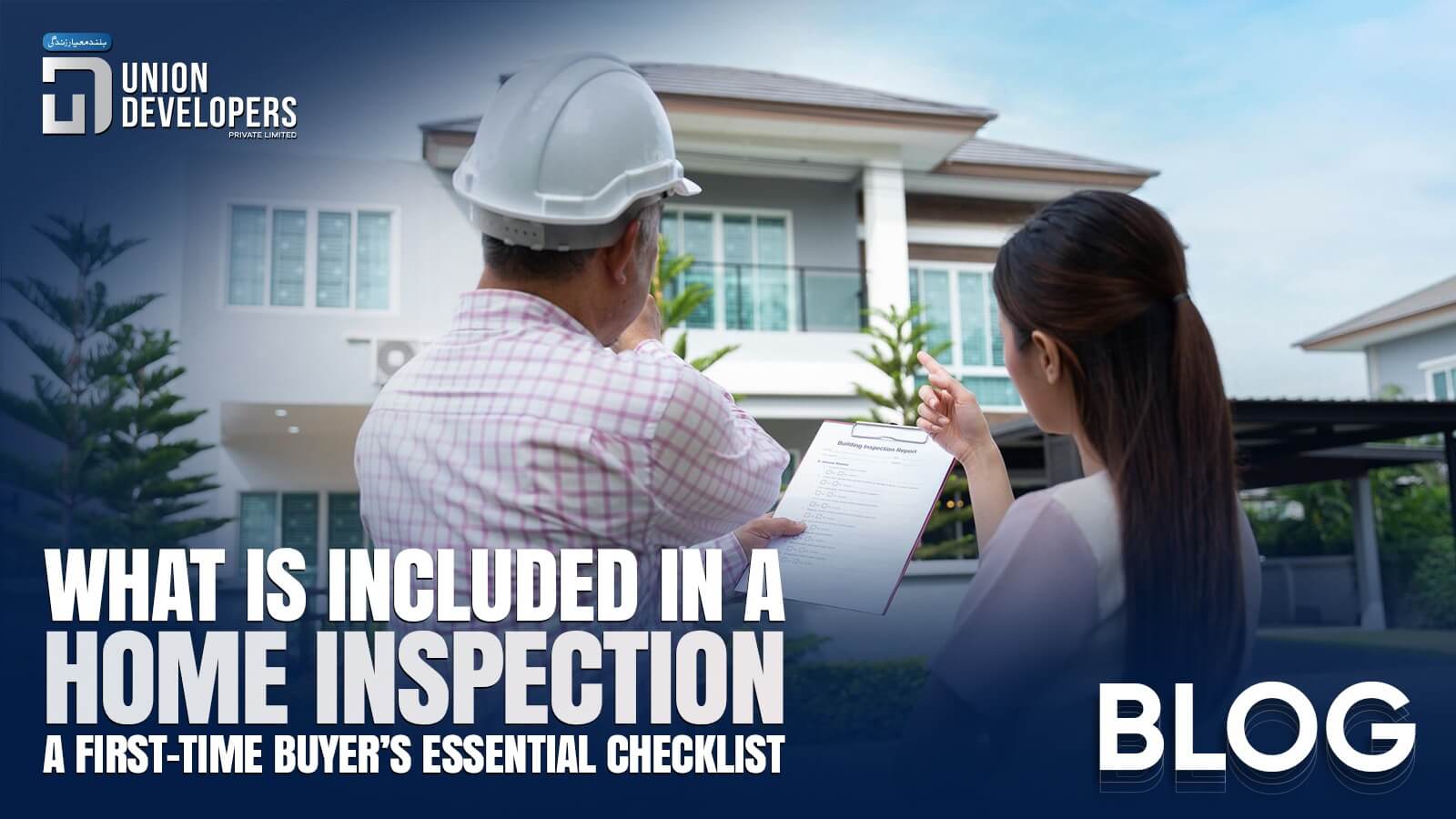Before you buy a home, you must have it checked by a professional home inspector. Yes, we understand the objection against this idea. Well, whenever you buy something for yourself, don’t you check it before buying it? For example, if you buy a shoe for yourself, you will check it to see if it is comfortable. You might check its condition to see if there is any scratch by chance or if the shoe material is good enough or not. Similarly, when you buy a house, you must inspect it thoroughly. There are some hidden defects or things only a professional home inspector can check. In this article, we will explore what a home inspection is and what it includes.
What Is A Home Inspection?

A home inspection is a thorough quality and safety assessment of a home that you are going to buy. A home inspection includes the structural examination, plumbing, electrical work, heating and cooling systems, and water and sewage systems to ensure everything is working properly. The winning argument in favour of a home inspection is that if you skip it, you won’t be able to use it as a contingency in your contract with the seller.
The contingency provides that if a home inspection reveals any defect in the house that was not mentioned before the contract, you can back off without any penalty. However, there is a specific timeframe for this claim; that is why you must have a house inspection done before the time ends.
Suggestion: Spend some money on your home inspection because it is worth it. Hire the best home inspector in your town and get a detailed report on the condition of the house.
Also, sometimes realtors add home inspection clauses in contracts for newly built properties. The inspection generally covers new home construction:
Foundation
Inspection, before the concrete is poured, is important because once the concrete is poured, there are few chances to correct it.
Pre-drywall
It is the checking of the mechanics and structure before the drywall is laid.
Full Inspection
A full walk-through is performed after the home construction is done.
When Should You Get A Home Inspection?

Every home buyer should know that the purchase they are making is in good condition. Are you planning to sell or buy a house? Then don’t disregard the idea of home inspection because you will need to ensure your purchase or sale is defectless.
Home inspectors turn up maintenance problems and other safety issues, which helps to know the condition of a house. This inspection is crucial because it will highlight the risks before any transactions.
What is Included in a Home Inspection?
Many inspectors come with different experiences, but a good inspector should inspect all the components of a house and then produce a report. The home inspection is two to three hours long, and you should also be present to get the first explanation of the inspector’s findings. This is the chance you can ask questions that come to your mind about the property.

Quick Tip for Home Inspectors
A home inspector must see each problem thoroughly, whether it is a safety issue, a major defect, or a minor defect. They must check which item in the house needs replacement and needs repairing. The items that are suitable should be monitored closely.
Now let’s see what first-time home buyers should look for during home inspections. Here is the necessary home inspection checklist for you to read and ensure all the areas are being inspected.
Exterior Inspection
The home inspector will do a complete inspection of the outside of the house structure. They will include climbing into any crawlspaces under the house and inspecting the roof and other items as well.
Exterior walls
The home inspector will inspect the house walls for missing siding, damaged sides, or any cracks in them. They will examine whether the soil is in close contact with the house bottom, which can cause wood-destroying insects. However, you might need a pest inspector as well to check the damage from termites, etc. The home inspector will let you know when you need a pest inspector and which problems are cosmetic and which are more serious.
Foundation
If the foundation of the house is not visible, then the inspector will not be able to inspect it directly. But don’t worry; they can still check for secondary evidence of foundation issues like settling or cracks. By the way, if you are buying a plot in Pakistan, then get the best construction services to raise the foundation of your house stronger.
Grading
The home inspector will give you a report about whether the grading slopes away from the house as it should. If the grading slopes are not away from the house, then water can get into the house. This will damage the house, and you will need to install a drainage system or change the slope.
Roof
The home inspector will check for areas where poor installation or damage could allow water to leak. Moreover, inspectors will also check the condition of the gutters to ensure the house is dry.
Quick Tip: House inspectors don’t check for every specific mould, water contamination, or termite damage. It is better you ask for the go-ahead from your inspector to get further in-depth inspections of the particular problems.
Garage
The home inspector will check the garage door and the ventilation system. The inspector will also ensure that the water heater is installed high enough from the ground to minimise the risks of explosion.
Interior Inspection
| Plumbing | The home inspector will inspect the showers and faucets and look for any leaks or damage. They will identify which pipes are being used in the house and if they need to be replaced. |
| Electric | The wiring of the house will be checked, and the inspector will check all the outlets and the circuits. He will also check the electrical panel for the safety of the house. |
| Ventilation, heating, air conditioning | The inspector will check the heating, conditioning, and ventilation system to ensure the age of the home’s ducting. Sufficient home insulation will minimise the energy bills, and if there is any asbestos insulation. |
| Water heater | The home inspector will check if the water heater is installed accurately and what the water heater’s age is. |
| Kitchen Appliances | The home inspector will check if the kitchen appliances are functioning properly and will tell you if they need to be replaced. |
| Fire safety and laundry room | The inspector will ensure that the garage wall has the proper fire rating. and is not damaged. He will also ensure the house’s smoke detectors. Moreover, the inspector will ensure the laundry room is ventilated properly. Because a poor dryer-exhaust system can aid the fire. |
| Bathroom | The inspector will check for any leaks, proper ventilation, and secured toilets. The bathroom must have a ventilation fan or a window to evacuate the moisture from time to time. |
What A Home Inspection Doesn’t Cover

A home inspector will look for any possible visible issues in the house, but you will have to get a close inspection of the specific issue later. The home inspector will look for all the possible damage in the house, but still, there are some areas they won’t look at.
The inspector won’t cut open the drywall or insulation to check inside the walls.
He won’t be looking inside sewer lines or pipes. The inspector will not look inside the chimneys and behind the electrical panels.
The home inspector does not check for site contamination, termite damage, asbestos, mould, engineering issues, or any other specialised problems that only field professionals can inspect.
However, the house inspector will provide you with a proper report and will also give you recommendations for further inspection.
Finally,
After the completion of your new house inspection, you can either back off the deal or go ahead. If the inspection indicates some severe, costly damage, then you can opt out of the deal or demand compensation. The home inspection is crucial before you do any legal transactions. Because after the transaction, you cannot back off from the deal. This is important not for the sake of the deal only but for the safety of the residents.





